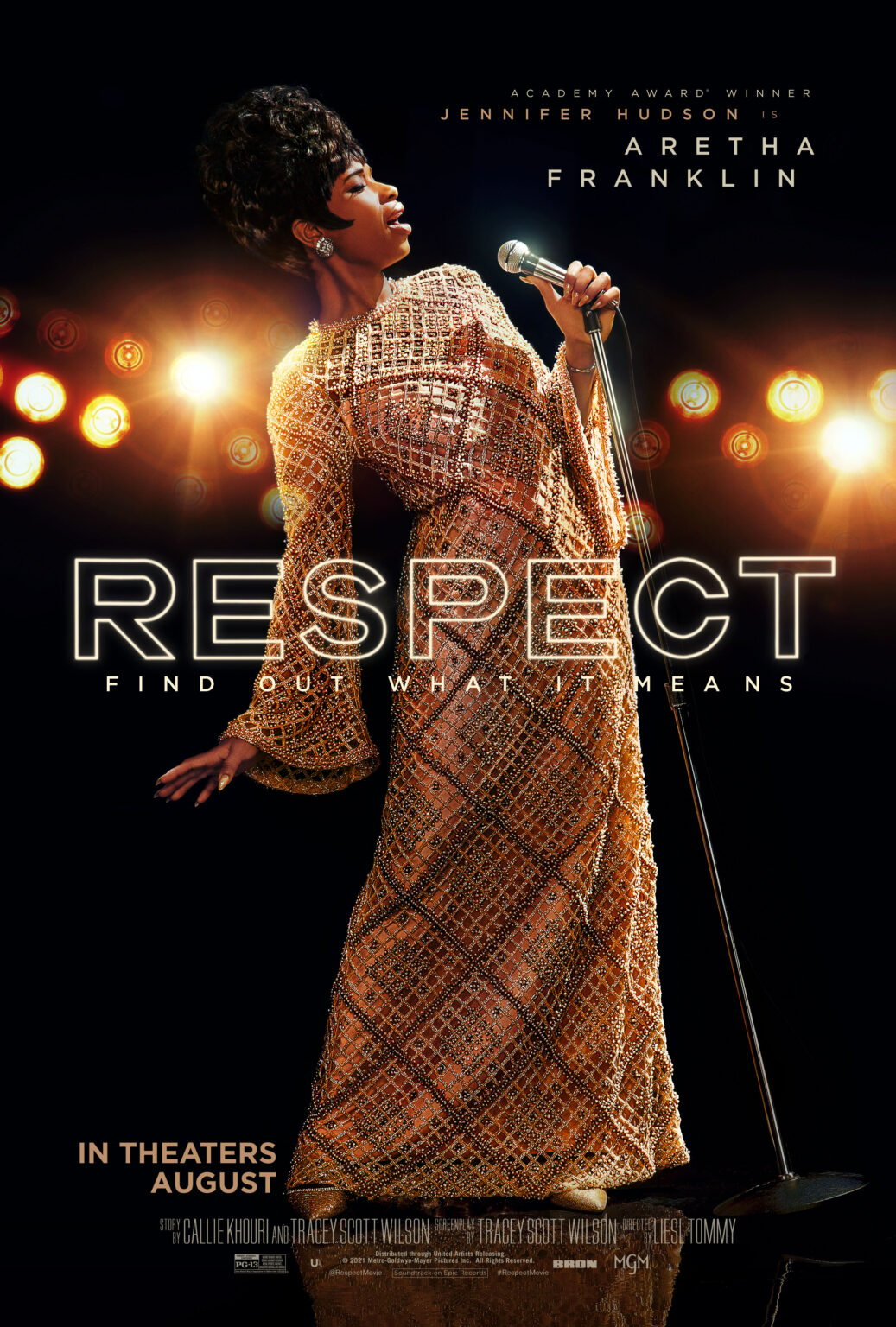
Sister Nancy Usselmann reviews the new Aretha Franklin biopic that chronicles the life of a symbol of American music.
As for so many other people, Aretha’s music has inspired me with the depth and power of her emotive gift. Her music has become an essential part of the American music canon from the 60s and 70s that speaks to generations of people wanting a voice. She gave that voice. A voice of resistance, protest, and love. She gave a voice to Black Americans who sought freedom from oppression not only in society, but even within the community, and within a family. She gave voice to anyone who struggles to discover their gift and purpose in this world. That voice, ultimately, brought her on a journey back to God.
The Aretha Franklin biopic, Respect, a film by Liesl Tommy, portrays her as a symbol of American music communicating passion, depth, and realism. Jennifer Hudson, handpicked by Aretha herself to play her in a movie, delivers not only a tremendously impassioned vocal performance but also an unrivaled character performance. Playing Aretha could not have been such an easy task. This film brings to life the little-known aspects of this brilliant musician growing up in an upper middle class Black family in Detroit whose background shaped her music and her life’s journey.

The film begins with a young Aretha (Skye Dakota Turner) learning to find her voice. Her father, C.L. Franklin (Forrest Whittaker), was a famous Southern Baptist preacher in Detroit, complex figure, and social activist. He and his wife Barbara (Audra McDonald) were divorced when Aretha and her siblings were young because of his multiple infidelities, but Aretha stayed close to her mother who shared her gift for music. Their relationship was intimate. One of the most touching scenes was Aretha with her mother playing the piano together and singing. Almost as if she had a premonition, her mother told her, “Your daddy doesn’t own your voice. Nobody does. Only God.”
Pastor Franklin had regular parties at his home with celebrities and church people mixing. Aretha would be called out of bed to perform for his guests. He also had her sing in church before the congregation. He knew Aretha had something special so he would take her on his preaching tours at churches and revivals exposing her to much at a young age.
When her mother died of a heart attack, Aretha was distressed and became prey to sexual assault resulting in a pregnancy at age 12. Her grandmother Rachel helped raised this child and Aretha’s other three children during the years. The church music director, James Cleveland (Tituss Burgess), later known as the King of Gospel music, told a teenaged Aretha, “Music will save your life” and she soon signed on with Columbia Records in New York with her father as her manager.

When she met Ted White (Marlon Wayans) at a party she fell in love and married him who then managed her burgeoning career that had her dabbling in jazz, blues, R&B, and doo-wop. When she left Columbia for Atlantic Records, her tolerance of Ted’s alcoholism and abuse came to a head, all while she was struggling to “find her voice.” It was through Producer Jerry Wexler (Marc Maron) that she began to know herself as a music artist, when he brought her to Alabama to record her album at FAME studies with the Muscle Shoals Rhythm Section, a talented group of white musicians that had the knack of melding R&B with soul and country. It was there in the studio when Aretha’s talent blossomed and where Jennifer Hudson’s portrayal moved me deeply. It was the moment she truly found “her voice.”
The Otis Redding song “Respect” became her signature song when she ramped up the rhythm and added her famous bridge that gave her the name of “Queen of Soul.” Her sisters Erma and Carolyn were her backup singers and together they created sounds that no one ever heard before. Her fame spread worldwide as she toured and performed endlessly. Her life began to spin out of control while her childhood trauma and darkness followed her often trapping her in bouts of alcohol abuse. Her father told her, “You’re not walking in the Spirit…” The scene of her bent over with grief and pain was a turning point in the film. She began to pray saying the “Our Father.” The image of her mother appeared to her, took her and held her all the while singing “Amazing Grace.” This spiritual experience changed her life.

After that experience, she decided to record her first Gospel album in the church, against Wexler’s advice. And she wanted to be a producer on the album named “Amazing Grace.” In the face of such confidence and determination, he gave in. It became her best-selling album of all time. She said, “This album is for God,” who saved her from following her own destructive path. This became a significant conversion moment, though she always struggled with her own darkness. She tells her father with whom she reconciled, “He [God] was with me. I tried to run but he brought me back … like Jonah.”
After seeing the documentary Amazing Grace by Alan Elliot and Sydney Pollack, I became aware of how remarkably Jennifer Hudson embodied Aretha’s gestures, movements, and demeanor throughout that scene bringing the depth of her emotions at that time of her life.
This incredible musician made her mark on the pop culture mindset with her ability to support civil rights and respect for each human being. Deeply human herself, with her gifts and flaws, she became a symbol of the power of grace and faith in one’s life.

Some strong scenes of alcohol abuse and sexual scenarios make this movie appropriate for older teens and adults. This lengthy 2 hour and 25-minute film is, however, a powerful testament of one human being’s ability to give the nation a soul. And that is why she is the “Queen of Soul.”

Copyright 2021 Sr. Nancy Usselmann, FSP
Images: Quantrell D. Colbert, © 2021 Metro-Goldwyn-Mayer Pictures Inc. All rights reserved.
Originally published on https://media.pauline.org/reviews
About the Author

Sister Nancy Usselmann, fsp
Sr. Nancy Usselmann, FSP is a Daughter of St Paul and the Director of the Pauline Center for Media Studies in Los Angeles, CA. She is a Media Literacy Education Specialist, theologian, international speaker, film reviewer, and blogger for BeMediaMindful.org. Her book A Sacred Look: Becoming Cultural Mystics is a theology of popular culture published by Wipf & Stock Publishing.


.png?width=1806&height=731&name=CatholicMom_hcfm_logo1_pos_871c_2728c%20(002).png)
Comments